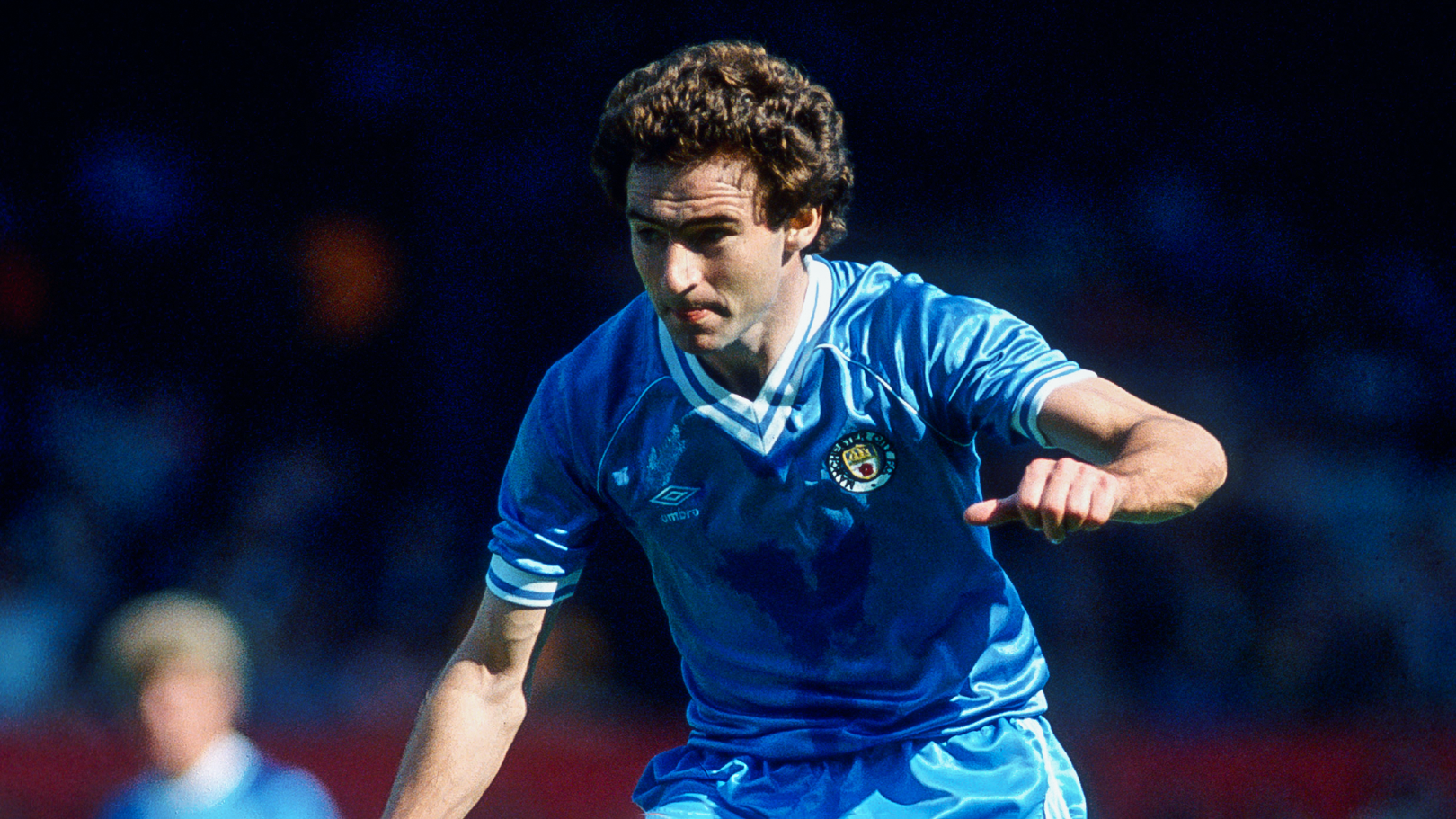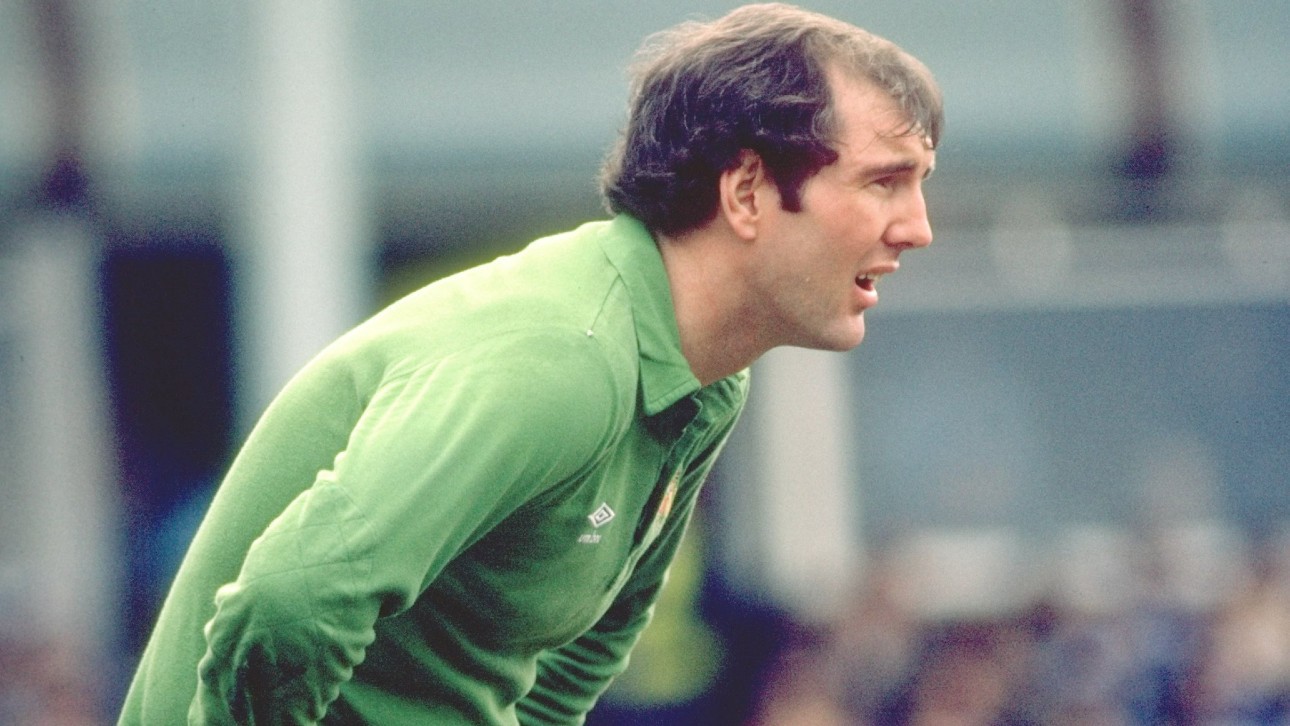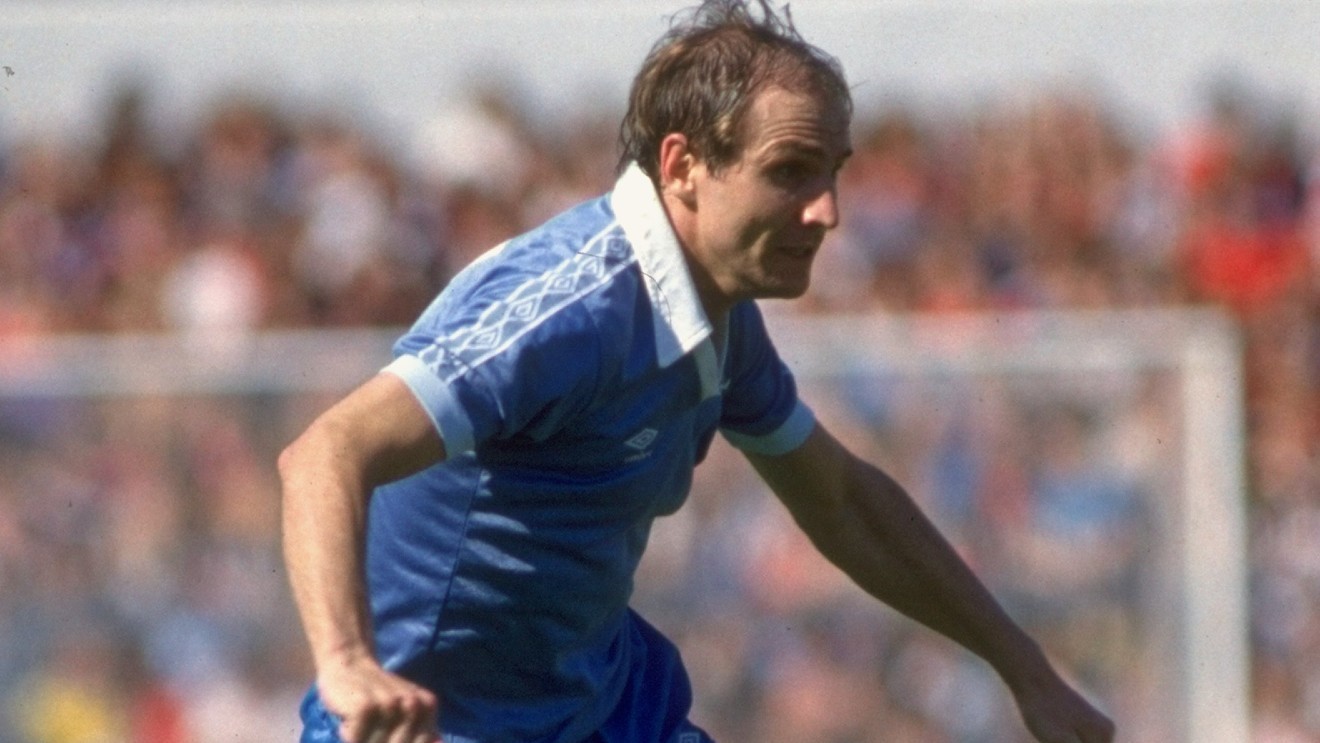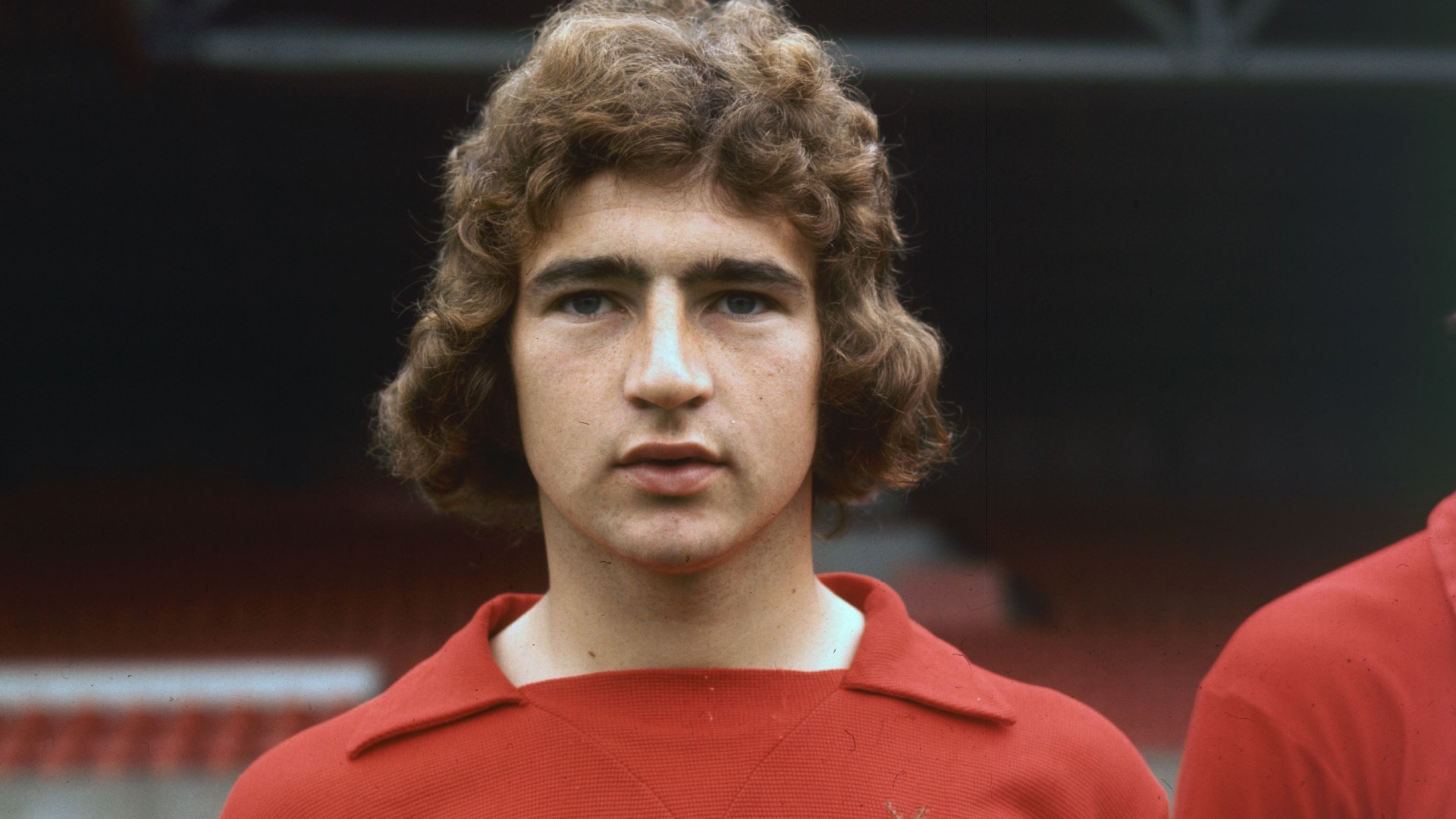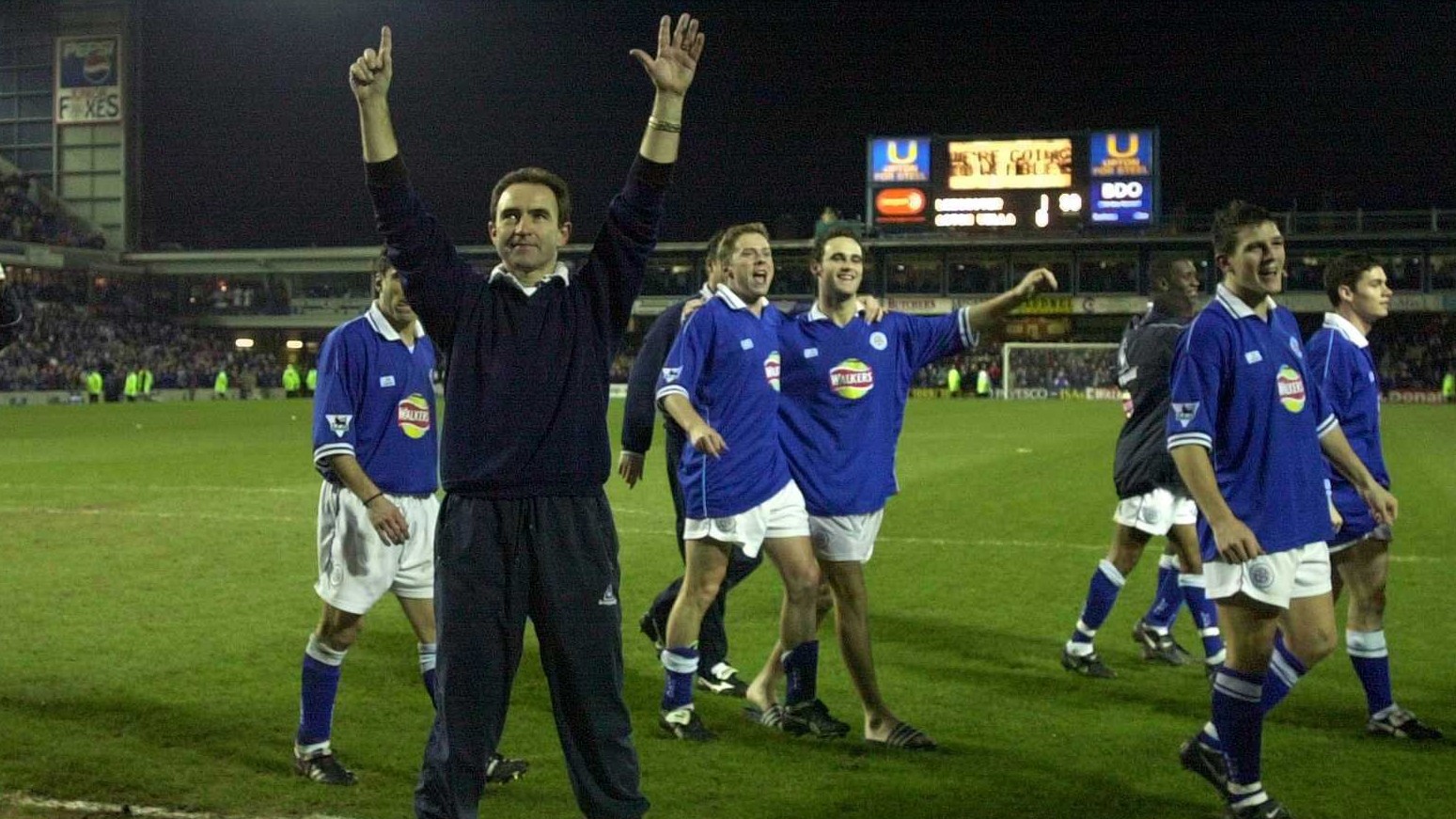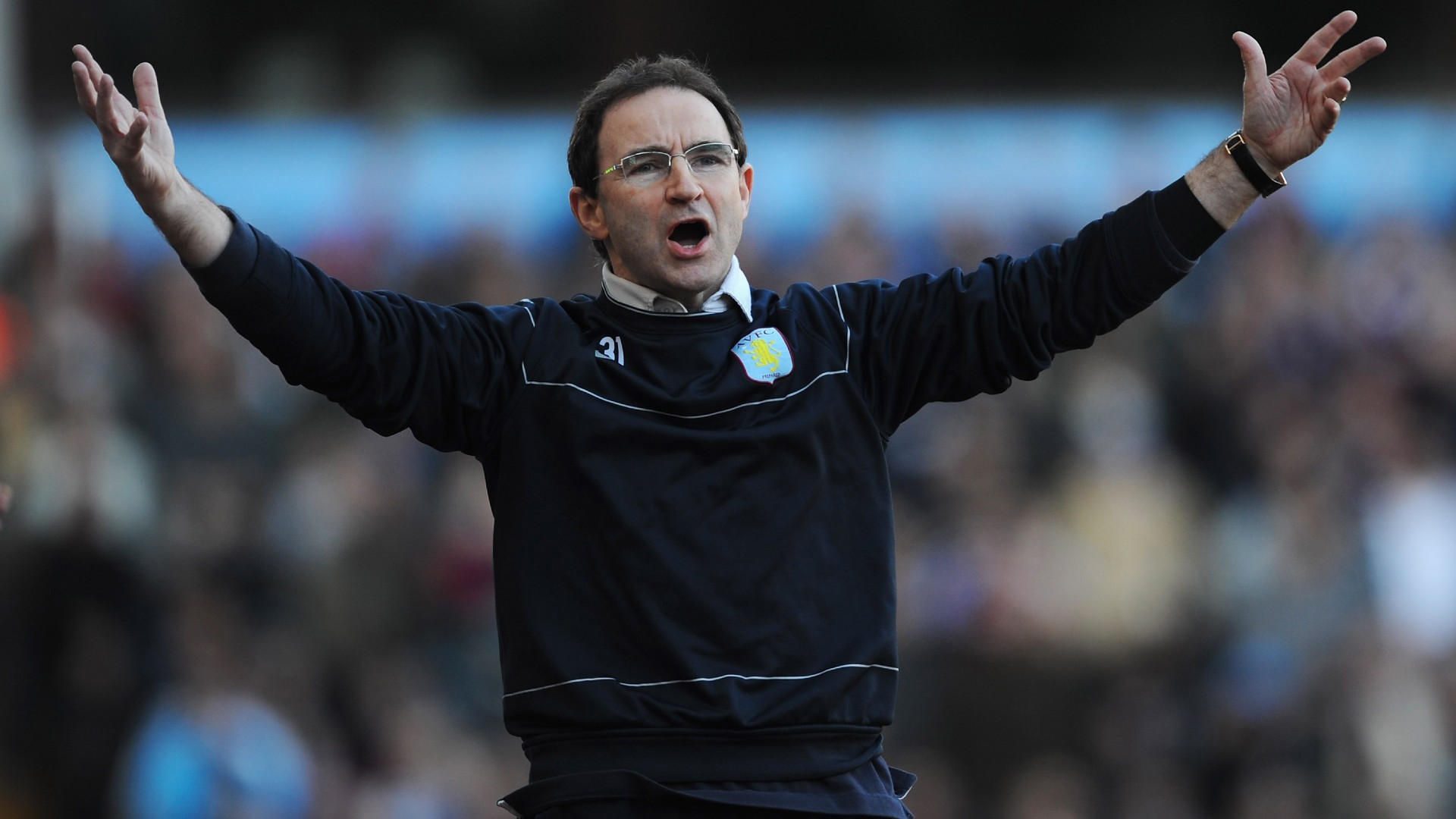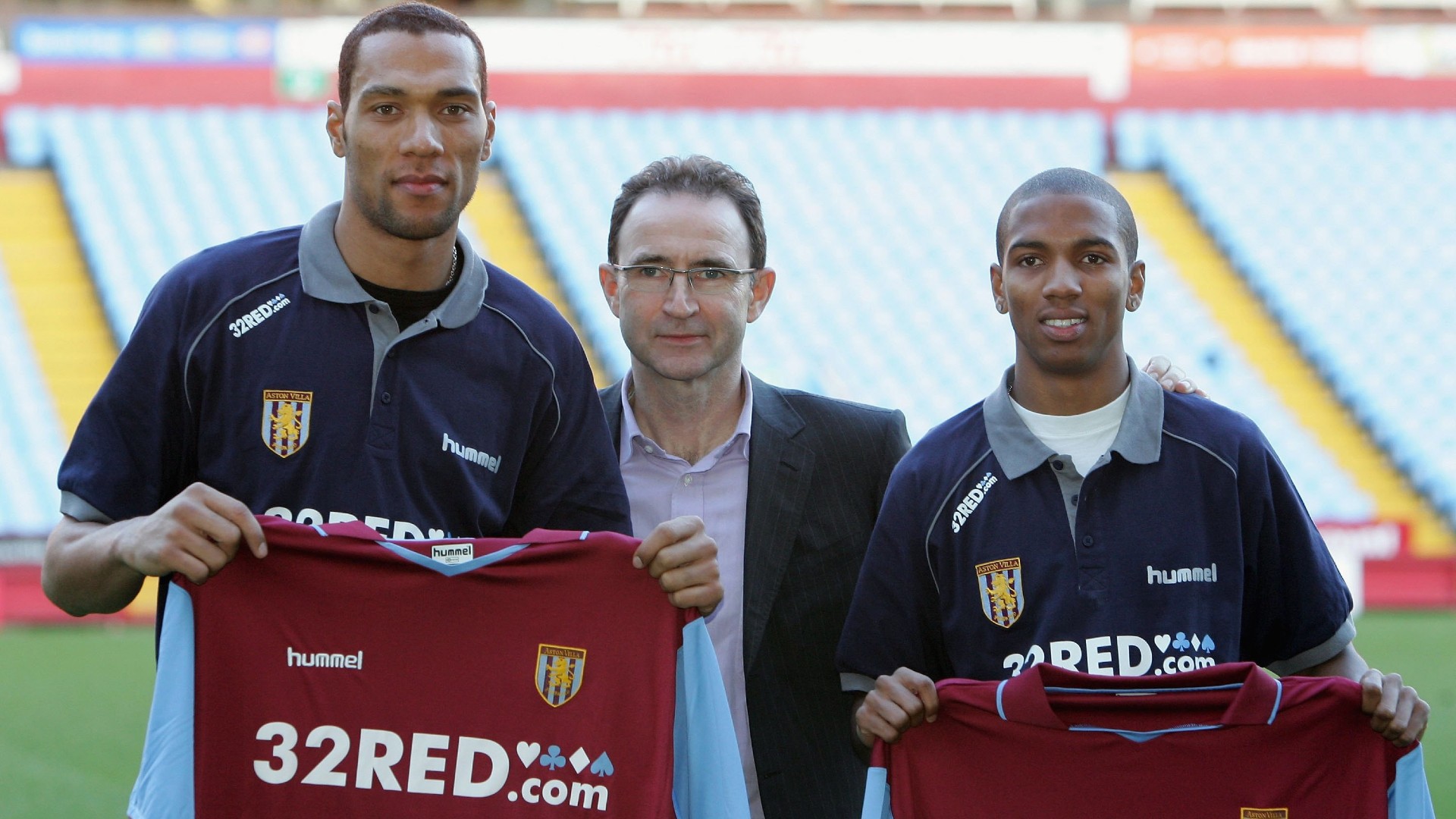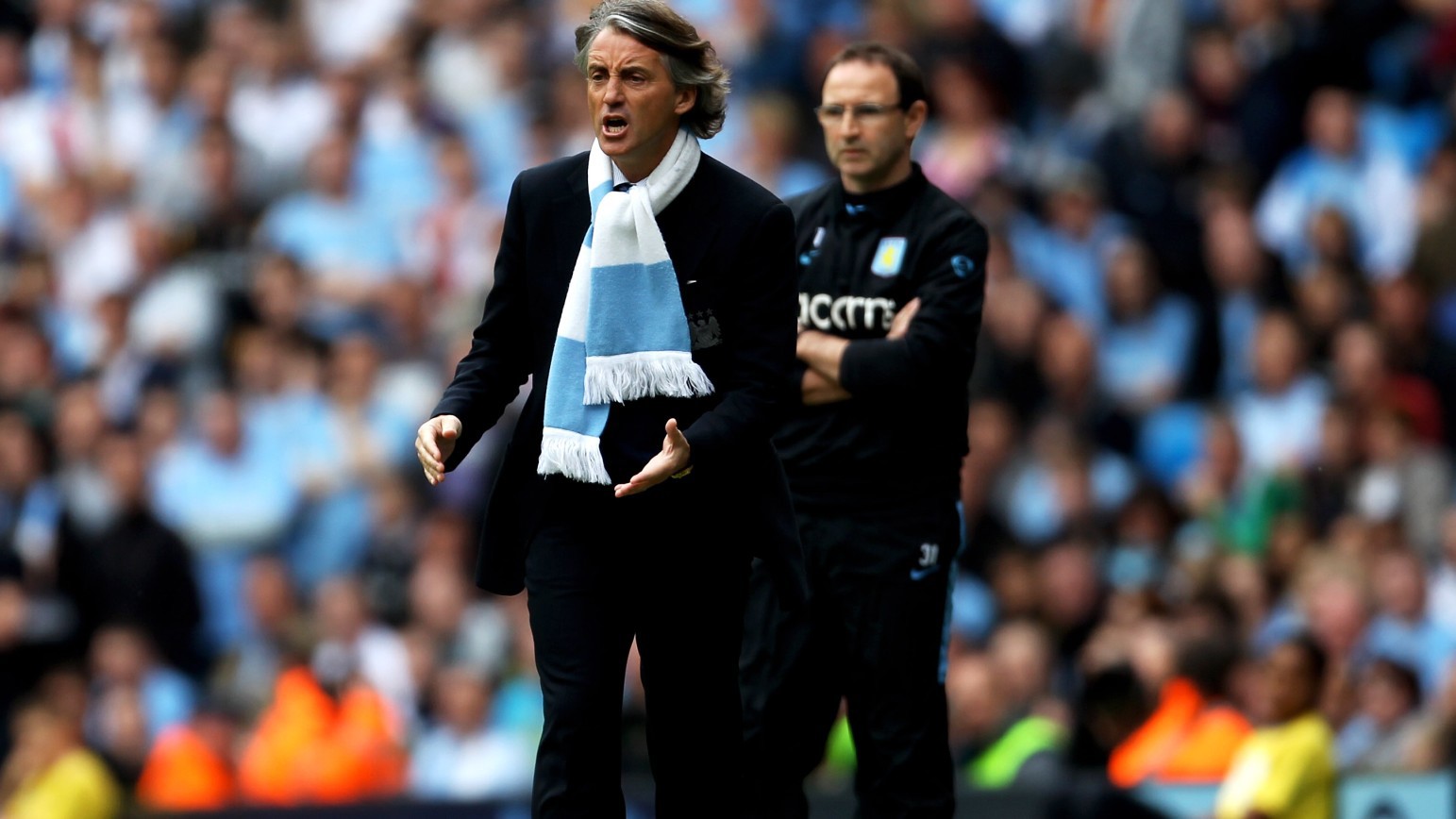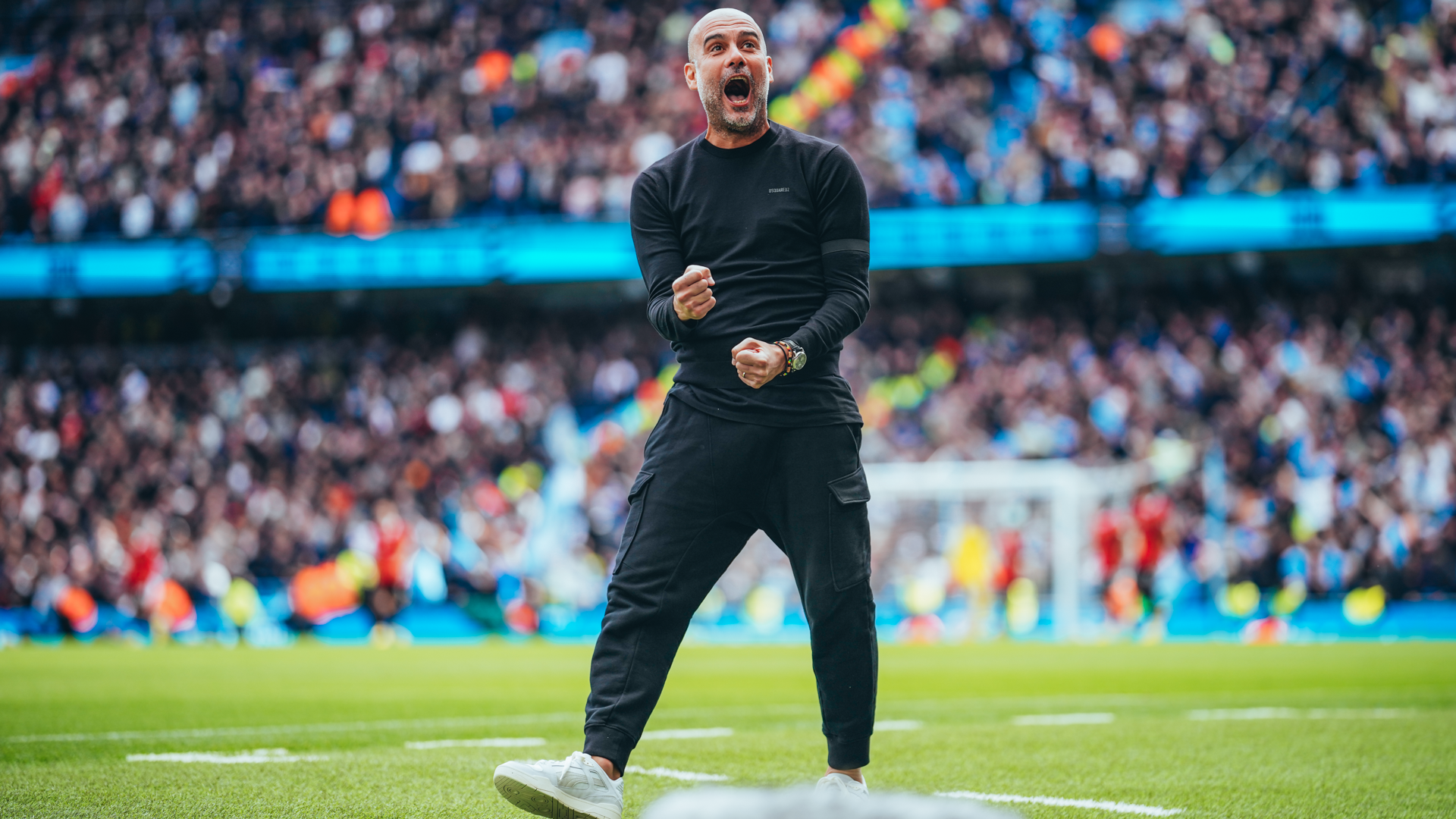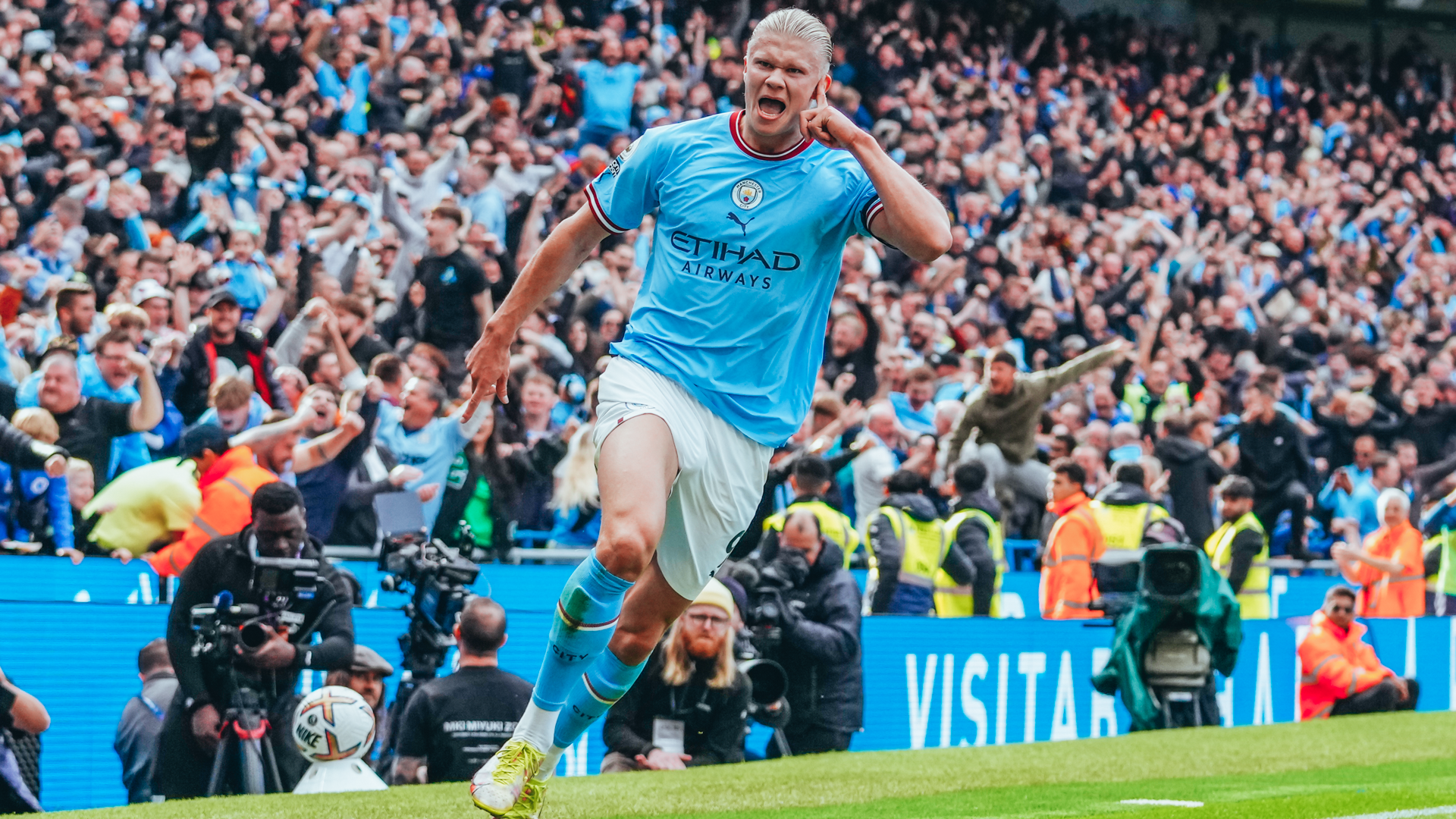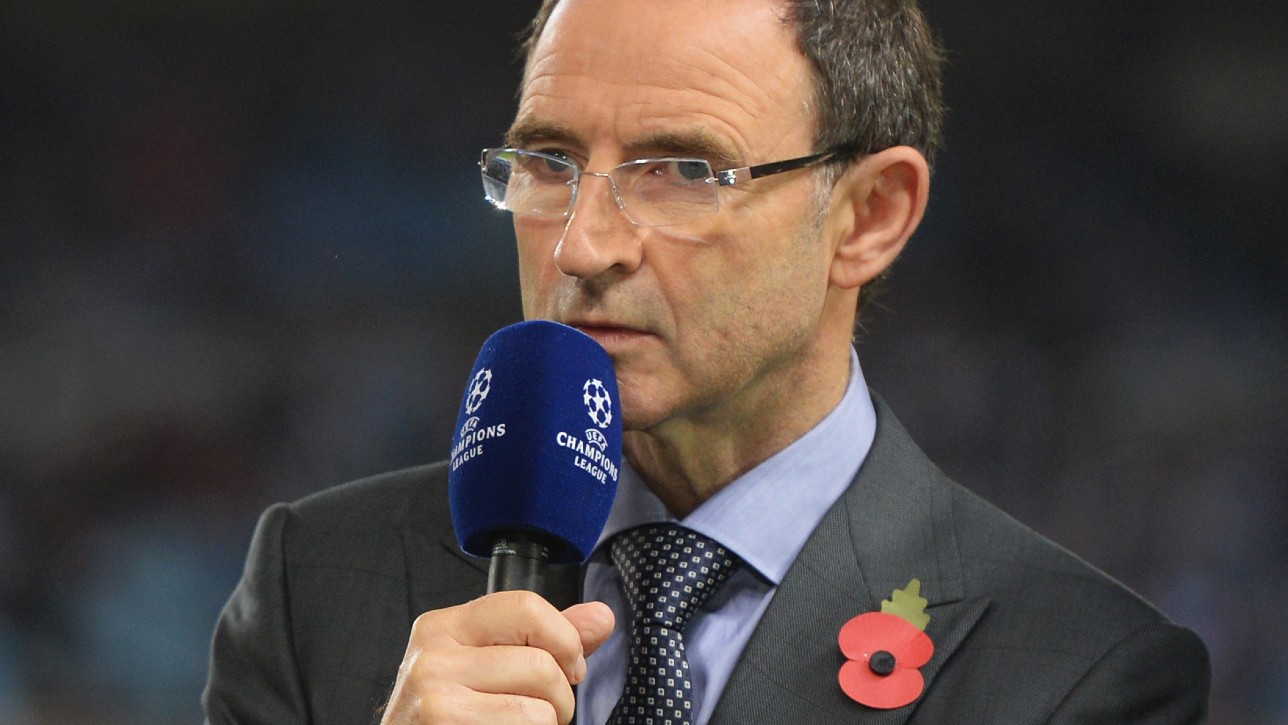Those were the thoughts running through Martin O’Neill’s head as he signed for Manchester City in the summer of 1981.
John Bond paid £275,000 to acquire the services of the dynamic midfielder who sported a winning mindset, cultivated during his time under Brian Clough at Nottingham Forest where he lifted two European Cups, the League Championship and two League Cups.
Hopes were high but things didn’t go to plan for O’Neill or City – and it’s a source of frustration for the popular Northern Irishman, who’s since go on to forge a hugely successful career in management.
O’Neill played only 16 games in the sky blue of City and departed after just the one season.
For a player renowned for being one of the fittest at Forest under Clough, it was injuries that scuppered his chance of thriving at City.
He admits that himself – although he does wish he’d been given a chance to stay and fight for his place.
O’Neill is never short of a story and he tells one, rather nostalgically, about the struggles he encountered after joining City.
He remembers taking part in manager Bond’s rigorous pre-season training runs soon after arriving at Maine Road.
O’Neill was nursing a calf injury in those early weeks - one he’d picked up earlier in the summer and it showed physically and, eventually, psychologically.
“The pre-season was arduous. It was difficult. John Bond had pretty tough pre-seasons anyway but this for me was doubly difficult because I felt I wasn’t properly fit.
“I didn’t feel the calf had completely healed so it was a bit of a struggle. The struggle then became as much psychological as anything else. I was thinking ‘John Bond is the manager, you’ve just signed someone and you’re trying to really progress things and the next thing you know, this new signing is finishing last or second last in pre-season long distance running.’
“I used to joke that if Joe Corrigan can finish in front of you then you certainly have a problem.
“The problem was, it sounds like a ready-made excuse at this minute but it’s not meant to be, my first youngster was born around this time and my wife was over in Ireland. I went over there and was doing some training with some amateur people and would you believe it, ridiculously, I pulled my calf muscle.
“I came to pre-season for Manchester City and wasn’t really properly fit. When you talk about problems compounding from there, it seemed like one thing after another.
“For all the time at Nottingham Forest, I’d had very few problems and coming to a new football club, the last thing you want to do is be turning up not completely fit.”
Corrigan played a hand, a very strong hand, in those early struggles for O’Neill – a fact that the Irishman can laugh about now.
City were due to play Bideford in a friendly on Saturday 1 August 1981 and follow it up with another friendly at Glasgow Rangers on Monday 3 August 1981.
O’Neill played in the 4-1 win on the Saturday but an exchange with Corrigan during that game meant he was gasping for air in the 2-0 defeat to the Scottish giants.
“Joe himself gave me the Joe Corrigan introduction – smashing a big right hander into my ribs. I bust a couple of them.
“Honestly, I could hardly get a breath. I’m sure John Bond was thinking ‘I wonder what I’ve signed here, is this boy a hypochondriac?’ I hadn’t told him that big Joe had put me about five feet in the air. It was a difficult start to life at City.”
Despite those pre-season struggles, when the campaign actually kicked off, it started brightly for O’Neill as City defeated West Brom 2-1 at Maine Road, goals from Dennis Tueart (pictured below) and Tommy Hutchinson in front of 36,187 earning three points on the opening day.
In fact, after six games, we found ourselves fourth in the table.
But it was inconsistency, in O’Neill’s eyes, that plagued the team that season, as they eventually finished 10th in the First Division.
“We started brightly and things were looking up. But we probably needed that bit of consistency which was probably missing from the team and maybe I epitomised that.
“My time at City was short. It was something I was really looking forward to.
“We had Trevor Francis, who’d also signed that summer, flying at the time when properly fit and we had some really fine players – Dennis Tueart, Joe Corrigan was an excellent goalkeeper, Tommy Hutchinson used to work little miracles over on the left hand side, twisting and turning, beating people.
“For me, I’d have loved to have enjoyed it. If I’d gone there absolutely fully fit and ready for it, I would have done so.
“But I genuinely did not do myself justice over the number of months I was there. I think sometimes, I am sure, John Bond must have been really disappointed. I should have been able to do better, you know. I had won the European Cup only just over a year previous, so I am sure John Bond would have been disappointed.
“But I think you have to look at yourself. I’d maybe learned to look at myself at times when I was at Nottingham Forest.”
Despite the up-and-down nature of the campaign, O’Neill does look back fondly on one game in particularly during his time in the sky blue – playing in the Manchester derby against United at Maine Road.
The game may have ended 0-0 but playing in front of 52,037 was something that O’Neill described as ‘mind boggling’.
“That was obviously absolutely fantastic to play in. This was City v United which was really, really supreme.
“And Maine Road as well too. The bits that I can remember were really astonishing.
“The atmosphere in the game, the hostility, it was mind boggling.
“I think Bryan Robson played directly opposite me that particular day. He was obviously a brilliant footballer, no doubt about it, he could tackle, he could head, he could score.
“Playing at Maine Road, too – it had its history. The pitch was really big, really really big for a start. And when the Kippax got behind you, it was fantastic.
“You can imagine me feeling envious of Trevor Francis when the crowd were really cheering for him.
“Manchester City had a historic ground and I genuinely would have liked to have stayed there longer or had the opportunity of fighting strongly and being a regular of a side who, for a while, looked like it might be going places.”
Despite seeing out the season, O’Neill’s fate was pretty much decided by Bond when the manager told the player of a bid from his former club, Norwich, in January 1982.
“I did not want to leave. It was John Bond who said there was an offer from Norwich City. And I think when the manager says to you ‘there’s an offer’ you feel as if he may have lost a bit of confidence.
“I still had a general enjoyment of Manchester City and I was prepared to dig in and earn my place in the team.
“It just came as a little bit of a jolt when he said that Norwich had come back in for me and I’d like you to go and speak to Ken Brown. So that was that.
“At the back of my mind and the one thing that probably made me think about it was that the World Cup was coming up. I was captain of the Northern Ireland team and we’d qualified for Spain 82.
“I probably thought I needed some games. That might have been the final thought going through my head but it was certainly not my initial thought. My initial thought was ‘I’m going to battle it through here’.”
After joining Norwich, he then went on to play for Notts County, Chesterfield and Fulham before retiring from playing.
That was most certainly not the end of O’Neill’s football story and, as one door closed another opened as he swapped strip for tracksuit – a career in the dugout that took off at Wycombe Wanderers and then skyrocketed at Leicester City from 1995-2000.
His time at Filbert Street was extraordinary as he took the Foxes to Premier League promotion in 1996 as well as two League Cup wins in 1997 and 2000 on top of another final appearance in the competition in 1999.
But, despite those grand days in the East Midlands, he does remember taking on Man City in the FA Cup in January 1996, after joining the club the previous December 1995.
“We had drawn Man City at Filbert Street, a game that finished 0-0 - and then we played Man City at Maine Road with the likes of Georgi Kinkladze and Niall Quinn and a group of players there, honestly they destroyed us.
“But the gap between Man City and Leicester City at that time looked awesome.”
By the time O’Neill returned to the Premier League, after a hugely successful spell at Glasgow Celtic, the rivalry with City was much more competitive as manager of Aston Villa.
He’d won three Scottish Premier League titles at Celtic Park as well as three Scottish Cups and a Scottish League Cup as well as earning a runners-up medal in the UEFA Cup where they were beaten by Jose Mourinho’s Porto.
As he strode inside Villa Park in 2006, first under Doug Ellis and then new owner Randy Lerner, there was huge optimism that O’Neill could spark a club that were the archetypal sleeping giants.
They’d won the League Championship in 1981 and European Cup in 1982 but had fallen on hard times in recent years – until O’Neill walked through the door.
O’Neill brought in a brand of exhilarating football, driven forward by star players like John Carew, Gareth Barry, James Milner, Stewart Downing, Ashley Young and Gabby Agbonlahor.
After finishing sixth in 2007/08 and 2008/09, the Villans were determined to finally gatecrash the elite echelons in 2009/10, much like City at that point.
Villa and City were the ‘upstarts’ attempting to destroy the monopoly at the summit.
“It was the beginning for Manchester City then being able to compete financially very, very strongly.
“I suppose it seemed only a matter of time before Manchester City would move from being upstarts to being the real deal and that’s what they turned out to be.
“They won the league soon after and carried on from then.
“But in those initial days, it was absolutely that – it was Aston Villa and Manchester City trying to gatecrash into the top four.”
O’Neill talks of a ‘sliding doors moment’ at the end of that 2009/10 campaign as Villa faced City at the Etihad Stadium – with a real feeling of ‘winner takes all’ in that battle for a Champions League spot.
Despite taking the lead, O’Neill’s Villa went down 3-1 after goals from Carlos Tevez, Emmanuel Adebayor and Craig Bellamy.
The rest, as they say, is history.
“It was ourselves, City and Tottenham vying for that there. Had we won at the Etihad - and we actually took the lead in that game and then gave away a really soft goal just before half-time, had we won that match, I think we would then have won at home to Blackburn and it would have secured us Champions League. These are sliding doors moments. It really was that close.”
O’Neill left Aston Villa before the start of the following campaign and then subsequently went on to take charge of his boyhood club, Sunderland, before spells with Republic of Ireland and Nottingham Forest.
Despite not managing at this moment in time, he still has huge passion for the game – and immense admiration for City boss Pep Guardiola.
Asked in a social media Q&A, to promote his new book ‘On Days Like These’, which modern manager he’d loved to have played for, he wasted no time in typing Pep’s name.
“I think Pep is innovative. I think he’s got plenty of charisma. There’s no question that he had some fantastic players at Barcelona but still he was able to mould them into the team that he wanted – and played the type of football that he wanted them to play - and he was successful there – the most important fact. Then he went to Bayern Munich.
“Here at Man City, he’s been fantastic, absolutely fantastic.
“First of all, the players he has are terrific players but he’s moulded them. You still need someone to manage them. You still need someone to guide them along the way. You still need all of these things no matter how good they are. You need a man at the helm.
“And the consistency at Manchester City over the last few years of winning football games has been phenomenal.
“But I love the little things. It’s the little things that look so simple but are so hard. You think everyone should think about them.
“You look at it and think to yourself ‘well that’s relatively simple’ but no, if it was that simple everyone would be doing it. I just think he’s handled the very best players in the very best possible manner.”
While O’Neill sees Guardiola as a pioneering influence on English football, he also loves the old-fashioned elements of the job he’s doing.
Like Brian Clough, Sir Alex Ferguson – and O’Neill himself – Guardiola has proper authority at the training ground.
It’s this influence that O’Neill believes leads to success.
“Pep has earned the right to be the master of the football club. But I think it probably helped at the start when he stepped into the club, he was much admired and wanted badly by the owners of the club, they were prepared to back him so he had that right from the beginning as I had.
“When someone like Dermot Desmond, the major shareholder at Celtic, says ‘I want you to take ownership of the club’, it’s a glorious feeling that you know the manager is actually in charge.
“Pep has earned the right to be in charge of the football club and earned the right to run the football club in the manner he sees fit.
“Success comes from that, it comes from knowing that you have the backing of the people behind you, that they will back you the whole way.
“You’ll have the odd disappointment. I know Man City don’t have the Champions League at this minute but that looks as if it could happen any given year. They’ve been unlucky at certain times.
“But overall, to know you have that backing, it does give you that power.
“Look at Alex Ferguson, Brian Clough, Pep Guardiola, Jurgen Klopp. If you have it, you feel you are in control and that’s very, very important.
“Winning trophies are the defining moments – you know that the control has been well merited.”
O’Neill is no stranger to the Champions League as he proudly sports two winning medals from his time at Nottingham Forest.
In 1979, Forest defeated Malmo 1-0 and then, the following season in 1980, they defeated German giants, Hamburg 1-0.
O’Neill believes it’s only a matter of time before Guardiola brings the trophy to the Etihad Stadium – and he thinks the signing of Erling Haaland could be the ‘missing piece of the jigsaw’.
“Haaland is something else. He can go in behind. He’ll score you those goals that City maybe didn’t score before – a cross may have been a little bit high for someone else. He’s going to be on the end of those things.
“He’s so strong and quick. I am not saying I am a soothsayer but there’s no surprise to me to see Man City in the position they’re in.
“They’re so capable of winning this Champions League. They have been before and been unlucky. If VAR had not been introduced they’d have beaten Tottenham Hotspur that one year.
“They need that wee bit of luck. But, by any stretch of the imagination, you feel City can win if he can stay fit.”
But what of O’Neill now?
Well, he’s just released his autobiography to rave reviews.
He’s been travelling the UK to promote it and says he’s been ‘pleasantly delighted’ with reaction to its introduction on the shelves.
What sets it apart from most books of its type is that O’Neill has penned it himself, rather than using a ghost-writer.
It’s something he’s always done with his manager notes in matchday programmes, too.
After being interviewed by the programme editor at Aston Villa under a week after joining the club, he was sent a draft of his column for the debut edition against Reading in September 2006.
After reading them, he rang the editor back and said ‘this is wonderful but I want to change one thing.’
What, asked the editor. ‘The words’, O’Neill replied.
He was impressed with the content on show but didn’t feel it was his personal style.
“You make me smile when you say that,” as he’s reminded of that story.
“At Leicester, we could go as late as Thursday night for my programme column for a Saturday game.
“I am there late on Thursday and Paul Mace [Leicester’s then head of media] used to be ‘Jesus Martin, please! They’re waiting for these notes and it’s past 10pm on a Thursday night’.
“To my eternal discredit I must admit!
“But, like with my new book, I wanted the words to feel like they were coming from me.”
Martin O’Neill’s book ‘On Days Like These’ is available to buy now.
With a career spanning over 50 years, O’Neill tells of his exhilarating highs and painful lows of life in football.
Written with his trademark honesty and humour, ‘On Days Like These’ is one of the most insightful and captivating autobiographies and a must-read for any fans of the beautiful game.

